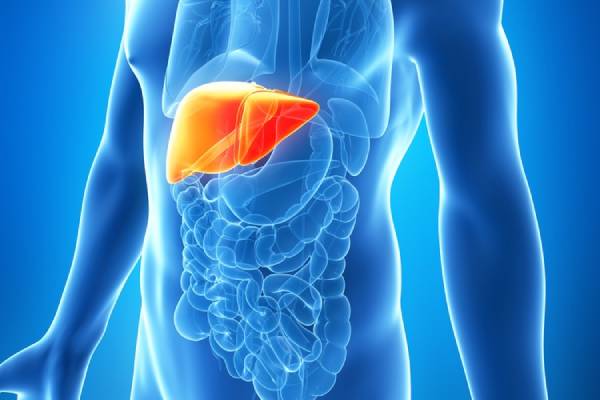Liver Cancer
- Home
- Liver Cancer

Liver cancer, also known as hepatic cancer, is a type of cancer that originates in the liver. It can either develop within the liver (primary liver cancer) or spread to the liver from other parts of the body (secondary or metastatic liver cancer). Dr. Arun Nair specializes in the surgical management of liver cancer and provides comprehensive treatment options for patients with this condition.
What is Liver Cancer?
Liver cancer refers to the abnormal growth of cells in the liver, leading to the formation of tumors. There are several types of liver cancer, including hepatocellular carcinoma (HCC), intrahepatic cholangiocarcinoma, and hepatoblastoma (primarily affecting children). Liver cancer can be caused by underlying liver diseases, such as chronic hepatitis B or C infection, cirrhosis, alcohol-related liver disease, or exposure to certain toxins.
Types of Liver Cancer:
Dr. Arun Nair is highly proficient in a diverse range of Liver Cancer, including:
- Hepatocellular Carcinoma (HCC): This is the most common type of primary liver cancer, originating from hepatocytes, the main cell type in the liver. It often develops in individuals with underlying liver disease, such as cirrhosis. HCC is typically associated with risk factors such as chronic viral hepatitis, alcohol abuse, non-alcoholic fatty liver disease (NAFLD), and certain inherited liver conditions.
- Intrahepatic Cholangiocarcinoma: This type of liver cancer starts in the bile ducts within the liver. It is relatively rare compared to HCC. Risk factors for intrahepatic cholangiocarcinoma include chronic inflammation of the bile ducts (primary sclerosing cholangitis), liver fluke infections, exposure to certain chemicals, and certain genetic conditions.
- Hepatoblastoma: Primarily affecting children, hepatoblastoma is a rare form of liver cancer that develops in the cells of the liver during early childhood. It is more common in children with certain genetic conditions or a family history of the disease.
Benefits of Liver Cancer:
- Early detection and treatment of liver cancer can improve the chances of successful outcomes. Regular surveillance for individuals at high risk can lead to early diagnosis and intervention.
- Surgical intervention can remove the tumor and potentially cure the cancer if detected at an early stage. Dr. Arun Nair specializes in performing liver resections and other surgical procedures to remove cancerous tumors from the liver.
- Minimally invasive techniques, such as laparoscopic or robotic surgery, offer smaller incisions, reduced pain, faster recovery, and improved cosmetic results compared to traditional open surgery.
- Dr. Arun Nair’s expertise in advanced laparoscopic and robotic techniques allows for precise tumor removal and preservation of healthy liver tissue.
Cost of Liver Cancer:
The cost of liver cancer treatment can vary depending on several factors, including the stage of cancer, the chosen treatment approach, the need for additional therapies (chemotherapy, radiation), hospital charges, and other associated expenses. It is advisable to discuss the cost aspects during the consultation with Dr. Arun Nair or the hospital’s administrative staff. They can provide detailed information about the estimated cost and assist with insurance coverage, if applicable.
Why Choose Dr. Arun Nair for Liver Cancer?

Experience and Expertise
Dr. Arun Nair is a highly skilled surgical gastroenterologist and laparoscopic surgeon with extensive experience in the management of liver cancer. He has received specialized training in advanced liver surgeries, including liver resections and complex hepatobiliary procedures.

Advanced Techniques
He is trained in advanced laparoscopic, robotic, and minimally invasive surgical techniques, allowing for precise tumor removal and improved patient outcomes. These techniques result in smaller incisions, reduced blood loss, shorter hospital stays, and faster recovery.

Comprehensive Care
Dr. Arun Nair provides personalized and comprehensive care, considering the specific needs and condition of each patient. He works closely with a multidisciplinary team of specialists to develop individualized treatment plans that may include surgery, chemotherapy, radiation therapy, or a combination of treatments.

International Exposure
With fellowship training from renowned international institutions, including the National Cancer Center in Japan and Fudan University in China, Dr. Arun Nair brings a global perspective to his practice. He incorporates the latest advancements and evidence-based practices in the field of liver cancer management.
Book an Appointment
To book an appointment with Dr. Arun Nair for liver cancer evaluation and treatment, you can contact the provided appointment phone numbers. The appointment staff will assist you in scheduling a convenient time for consultation.
Frequently Asked Questions (FAQ's):
Risk factors for liver cancer include chronic viral hepatitis (B or C), cirrhosis, excessive alcohol consumption, non-alcoholic fatty liver disease (NAFLD), obesity, exposure to certain toxins or chemicals, and certain genetic conditions.
Diagnosis of liver cancer may involve imaging tests (ultrasound, CT scan, MRI), blood tests to assess liver function and detect tumor markers, and a biopsy to confirm the presence of cancer cells.
Treatment options for liver cancer depend on the stage and extent of the disease. They may include surgery (resection, liver transplant), ablation therapy, embolization, targeted therapy, radiation therapy, and chemotherapy. Dr. Arun Nair will recommend the most appropriate treatment plan based on individual factors.
While it may not be entirely preventable, reducing the risk of liver cancer can be achieved by practicing healthy lifestyle habits, such as avoiding excessive alcohol consumption, maintaining a healthy weight, getting vaccinated against hepatitis B, practicing safe sex, and avoiding exposure to toxins.
Recovery time after liver cancer surgery can vary depending on the complexity of the procedure and the individual’s overall health. Generally, it may take several weeks to months to fully recover. Dr. Arun Nair will provide post-operative care instructions and closely monitor the progress during follow-up visits.
Google Review
EXCELLENTTrustindex verifies that the original source of the review is Google. Dr. Arun S. Nair is an exceptional surgeon whose expertise and dedication were evident throughout my father’s treatment. From the very first consultation, he took the time to explain the procedure in detail, addressing all our concerns with patience and clarity. His calm and confident approach reassured us that my father was in the best hands. During the surgery and recovery process, he remained attentive, ensuring everything went smoothly and that my father was comfortable. His professionalism, skill, and genuine concern for his patients make him a truly outstanding doctor. Leena, was equally remarkable. She was always available to answer our questions, provide updates, and offer emotional support. Her warmth and kindness made a huge difference, not just for my father but for our entire family. She treated us with care and respect, making sure we felt heard and supported every step of the way. Together, Dr. Nair and Leena create a team that goes above and beyond for their patients. We are incredibly grateful for their care and would highly recommend them to anyone in need of medical treatment. Susanna Parackal Varghese D/O P T VargheseTrustindex verifies that the original source of the review is Google. We’ve had an amazing experience with Dr. Arun S. Nair. When my dad got sick, I found Arun online and reached out to his assistant. He has been nothing but exceptional in patient care. He did a very long and complicated gastral surgery on my dad and he came out of it perfectly fine. Dr Arun, his associates Dr Aishwarya and Leena are very talented people and great at supporting the patient throughout the process. I was constantly in touch with all of them over the phone and they were very helpful to all of us. If you have any gastric related issues, please always go to Dr Arun.Trustindex verifies that the original source of the review is Google. Good treatmentTrustindex verifies that the original source of the review is Google. Dr. Arun S Nair is a skilled gastro surgeon known for his kindness and politeness towards patients.Trustindex verifies that the original source of the review is Google. I was a surgery patient here. It was nice experience and feeling goodTrustindex verifies that the original source of the review is Google. നല്ലത്Trustindex verifies that the original source of the review is Google. Right after the first consultation with Dr.Arun S Nair I gained confidence to do my hernia surgery and decided to get it done by Dr.Arun S Nair himself. Surgery was successful and I recovered within the time as previously told in the first consultation.Trustindex verifies that the original source of the review is Google. Dr. Arun S Nair totally impressed us during our first meet in February 2023 regarding my mother's surgery. Dr Arun gives courage, confidence and the way he treats patients, maybe beacause of all this I didn't have any tension. He is very friendly with everyone. I'm very satisfied with his approach. Dr. Arun S Nair is one of the best Gastro Surgeon in Kerala.Thanks again to Dr Arun sir . Special thanks goes to sister Rachel for her continuous support and assistance throughout our stay.Trustindex verifies that the original source of the review is Google. I am very satisfied and happy. Dr Arun totally impressed us during our first meet.Very happy with the friendly and compassionate aproach. All the staffs are very supportive. Thank you sir

